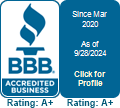
Stay In Control of Your Finances: Prepare For Unplanned Expenses
Any financial strategy can get derailed by unforeseen costs. No matter how well-planned your budget is, occasionally unanticipated emergencies, like medical treatment, car repair, and home repairs, may arise. Unable to pay for these unforeseen expenses may make a stressful situation much more difficult.
However, with some preparation, you can keep your financial aspirations from being shattered by surprises. Below are a few suggestions.
1. Create A Spending Plan And Follow It
Do you know what distinguishes a spending plan from a budget? A budget is a plan to keep your expenditures under control by dividing your revenue into definite expense categories. Whereas, when creating a spending plan, you can ensure that your essential costs are covered but have the discretion to do anything you like with the remaining funds. In the end, they both add up to the same thing.
Add up all the money you have spent on bills in the last year to create a realistic spending plan. Consider strategies to spend your money more wisely, such as reducing needless purchases. Use your newfound wealth to invest and save.
2. Establish A Safety Net
It is time to open an emergency account if you haven’t already. An emergency fund should equal at least three to six months of your gross monthly income. Evaluate your earnings and decide how much you can put into the fund each month to get one started. As your income increases, you can raise the amount. Deposit the sum into a new, emergency-only account like you make other payments.
You are less likely to get into debt if you have adequate money for emergencies. Keeping the money in a separate savings account can help you avoid the temptation to spend it.
Once you ensure you have enough money in your emergency fund, you may either use it to pay off debt or put more money into savings.
3. Consider Insurance Where Necessary.
Saving money and creating an emergency fund are not your only options when preparing for unforeseen expenditures. You should carefully consider your insurance alternatives since there are certain situations when the cost may be more than you have in savings.
Make sure you are fully aware of the things you need to protect, such as your house and the items you cherish, your family’s health, and so on, before you get insurance. If your employer offers some of these insurance policies as part of your employment perks, you may not need to purchase them.
Before choosing the best option, browse wisely and compare products from several insurance companies. To be aware of the terms of your agreement, read the policy document and make inquiries. Make sure to choose wisely to meet your protection needs.
4. Have A Secondary Or Passive Source Of Income
Typically your primary job’s pay is insufficient to cover your living expenses. In other words, it pays to have a side business or passive income. It will not affect your monthly budget because you may put the money you make from them into your emergency fund.
If you get additional funds, such as tax refunds, financial gifts, or bonuses, you can put them in your emergency fund instead of using them for other purposes. You may also rent out any extra rooms you have and put them on Airbnb. By doing this, you can generate a few revenue streams that will enable you to prepare for unplanned costs.
Conclusion
Although it is hard to foretell future emergencies, you may safeguard yourself and your family against difficult times with some knowledge and preparedness. It could seem unimportant when everything is going smoothly, but you should be ready to deal with and overcome emergencies. Consequently, if you haven’t already, begin planning right now.


